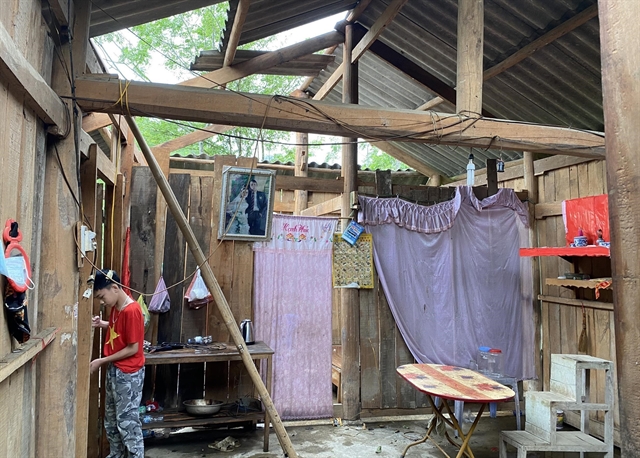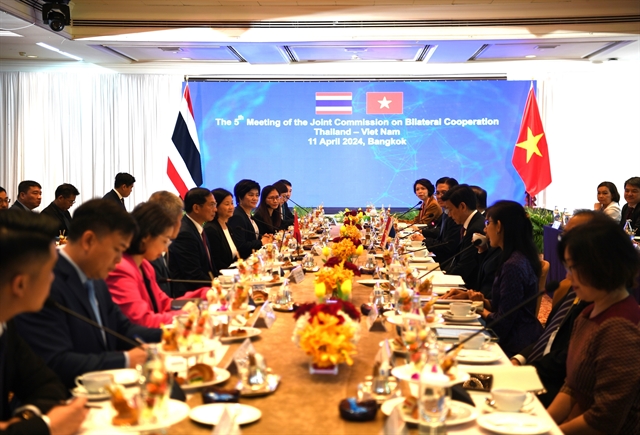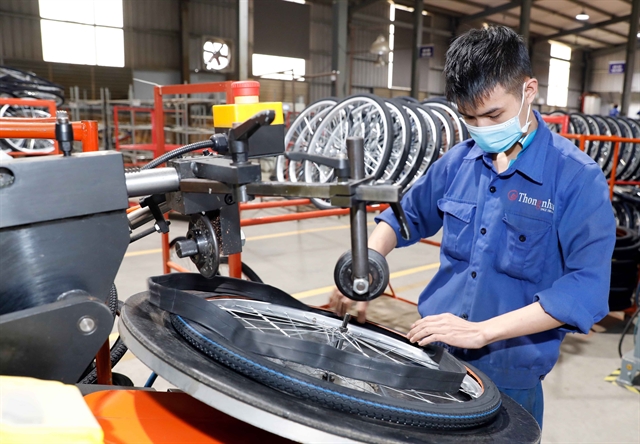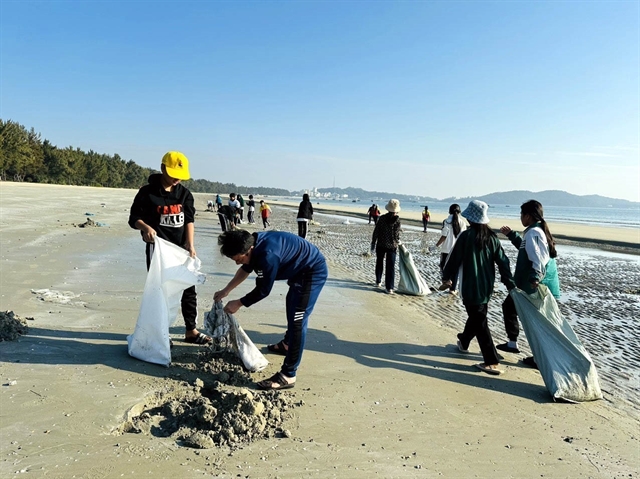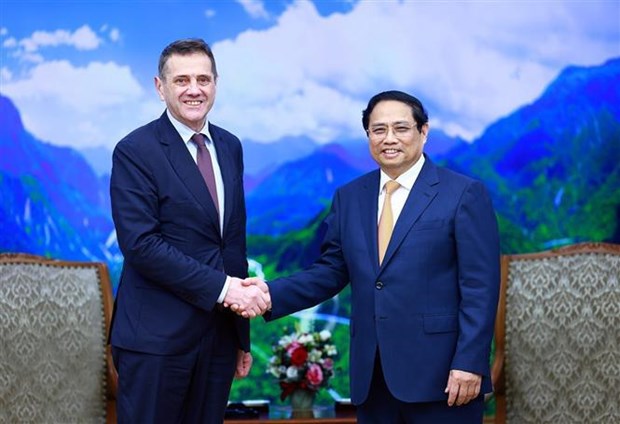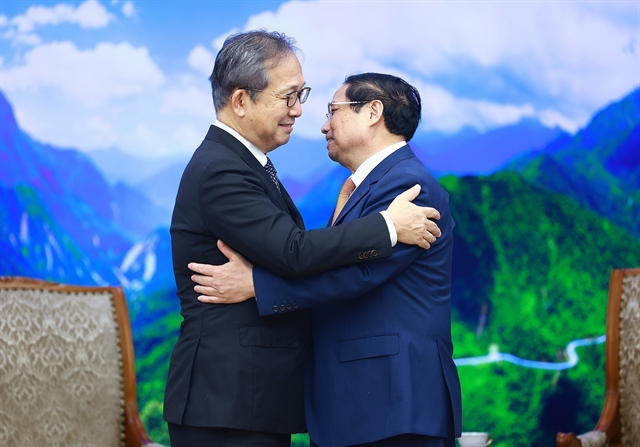 Economy
Economy

" />The Property Report Congress is being organised in Việt Nam for the first time today, and Việt Nam News asked property specialists attending it about the country’s property market, especially the opportunities and challenges as the country continues to integrate and recently began to allow foreigners to buy property.
The Property Report Congress is being organised in Việt Nam for the first time today, and Việt Nam News asked property specialists attending it about the country’s property market, especially the opportunities and challenges as the country continues to integrate and recently began to allow foreigners to buy property.
What strengths, opportunities and challenges do you see in Việt Nam’s property sector, especially with the country’s global integration? What is the biggest hurdle to the development of the Vietnamese property market?
 |
| Rudolf Hever |
Rudolf Hever, co-founder and executive director of Alternaty Real Estate, a boutique hotels and resorts consulting firm based in HCM City:
Việt Nam’s strengths are the long-term trends and demographics that have been in place for some time: strong FDI flows, rapid economic growth which is expected to be among the fastest globally, GDP per capita growth, rapidly expanding middle class, young population with a large labour force, business confidence, consumer optimism, and growth in [the number of] international visitors.
Despite the volatility that will always be present, I think these trends will remain in place for the medium to long term and will continue to underpin fundamental economic and real estate growth in Việt Nam.
Trade is another strong demand driver for real estate, especially in the industrial and commercial sectors. Here we see the Government putting in a lot of effort to sign trade agreements as well as the ASEAN Economic Community (AEC) and Trans Pacific Partnership (TPP).
The challenges are to foster the rapid development of the real estate cycle without creating large-scale inefficiencies and property price bubbles. However, I believe these occur when there is too much central involvement rather than too little. So I think the best way forward is to have a minimal level of controls and safety measures, but let the market do the rest.
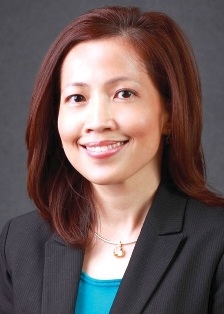 |
| Sigrid G. Zialcita |
Sigrid G. Zialcita, managing director of Research for Asia-Pacific, Cushman & Wakefield:
Due to its favourable demographic profile and rapid urbanisation, Việt Nam’s real estate market has immense potential for long-term growth. As Việt Nam’s economy matures, it will lead to more stability in its commercial sectors. Currently, a structural problem would be the ambiguous legal frameworks, complexity of ownership and taxation issues that are complicating transactions. While residential supply will spike in the short term, all markets are susceptible to property cycles. The State Bank of Việt Nam has also said it will be raising macro-prudential measures for property loans which will take effect next year. We deem this to be necessary as this will lead to a more sustainable real estate sector. A rising property market should ideally be due to a strengthening of economic and property fundamentals, rather than based on speculative activities.
The biggest hurdles currently are related to ownership, taxes and legal issues which complicate transactions and result in an opaque property market. Foreign investments generally flock to jurisdictions with a high level of market transparency with clear ownership titles.
Your company has been in Việt Nam for long. Which property segment do you think has the greatest potential here?
Hever: Alternaty was set up by myself and my business partner Mauro Gasparotti in 2012, and so we are going into our fifth year of operation. On top of that, we have both been based in Việt Nam in the real estate sector since 2007, which makes almost 20 years of experience in the Việt Nam property market between us.
Initially the property segment we focused on was hospitality – hotels, resorts, condotels, branded residences and second homes -- because in 2012, when we founded Alternaty, we believed this segment had the most potential. Given our firm’s rapid growth over the years, our prediction was not too bad, and we remain bullish on Việt Nam’s hospitality sector.
Now we are branching out into hospitality management, investment services, residential sales and brokerage, and sales overseas because this is where we see further opportunities.
Zialcita: The industrial and office sectors are the most promising, due to the availability of affordable labour and improvements in the talent pool in terms of skills and education. Quality office and industrial developments are also in short supply, which means developers have a demand gap they can fill.
The laws have been changed to make foreign ownership easy. Is it working? What is the level of interest among possible foreign buyers?
Hever: Sure it is working. There is plenty of foreign interest and we get a high level of attendance and engagement at each of the property sales events we have conducted overseas – we have held overseas sales events in Hong Kong, Shanghai and Singapore. Some of the current projects have already reached their foreign ownership limit!
Of course, Việt Nam is not a mainstream market, it is an emerging real estate market, with risks that currently only the bravest foreign investors are willing to take. It will take some time for the Việt Nam real estate market to build credibility and trust from mainstream foreign buyers. But I have no doubt this will happen within the next one to three years, and when it does, it will be a major wave and will have a significant positive impact.
Zialcita: The new regulation has yet to make a significant impact due to the ambiguity from the various decrees released. While it is a step in the right direction, the law is still evolving and most foreign buyers are awaiting more clarity. The current tenure for foreign ownership, at 50 years and renewable for a further 50, is also unfamiliar to prospective western buyers. However, residential prices in Việt Nam are attractive when compared to comparable apartments in Bangkok, Manila and Jakarta, which is a selling point.
What do foreign property developers expect when they come here? How can Vietnamese property developments attract foreign buyers?
Hever: What foreign investors and developers are looking for when looking to invest in a real estate project in Việt Nam are transparency, credibility and trust with the local partner, a reasonable level of risk and an entry price that enables a realistic profit margin which justifies the development risk. In other words, they are looking for a development project that has all the necessary approvals in place, ready to be implemented immediately, with a trustworthy local partner that has an established track record of successful projects, and a land value that takes into account the current market risks.
Individual foreign buyers are looking for a trusted brand name, reasonable price, and good prospects for annual yield and capital gain on exit. They are also concerned about the (positively) evolving foreign ownership laws and transparency on the mechanics of the sale process at the end of the holding period. This includes clarity on what exactly happens after the 50-year ownership period and applicable taxes and capital repatriation process on sale and exit. So there is a lot of education that remains to be done.
Zialcita: A key difference for foreign buyers is their interest in quality building management which essentially protects asset performance and results in more stable capital values with good potential for appreciation. There is also a difference in perception of construction quality between foreign and local buyers, including the acceptable quality of finishing. Generally, foreign buyers tend to favor reputable and well-capitalised developers with a good regional track record; developments by foreign developers usually command a premium.— VNS

